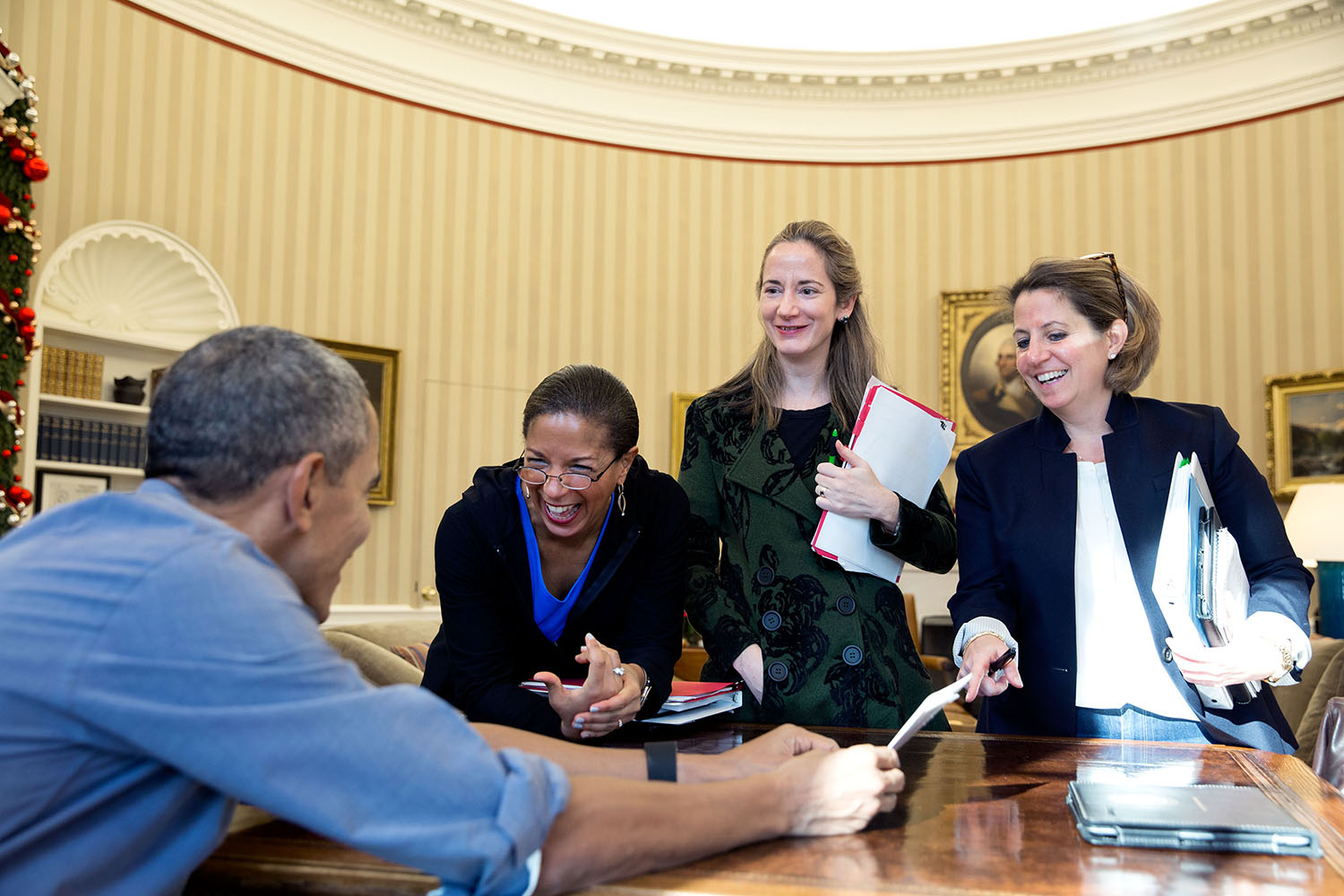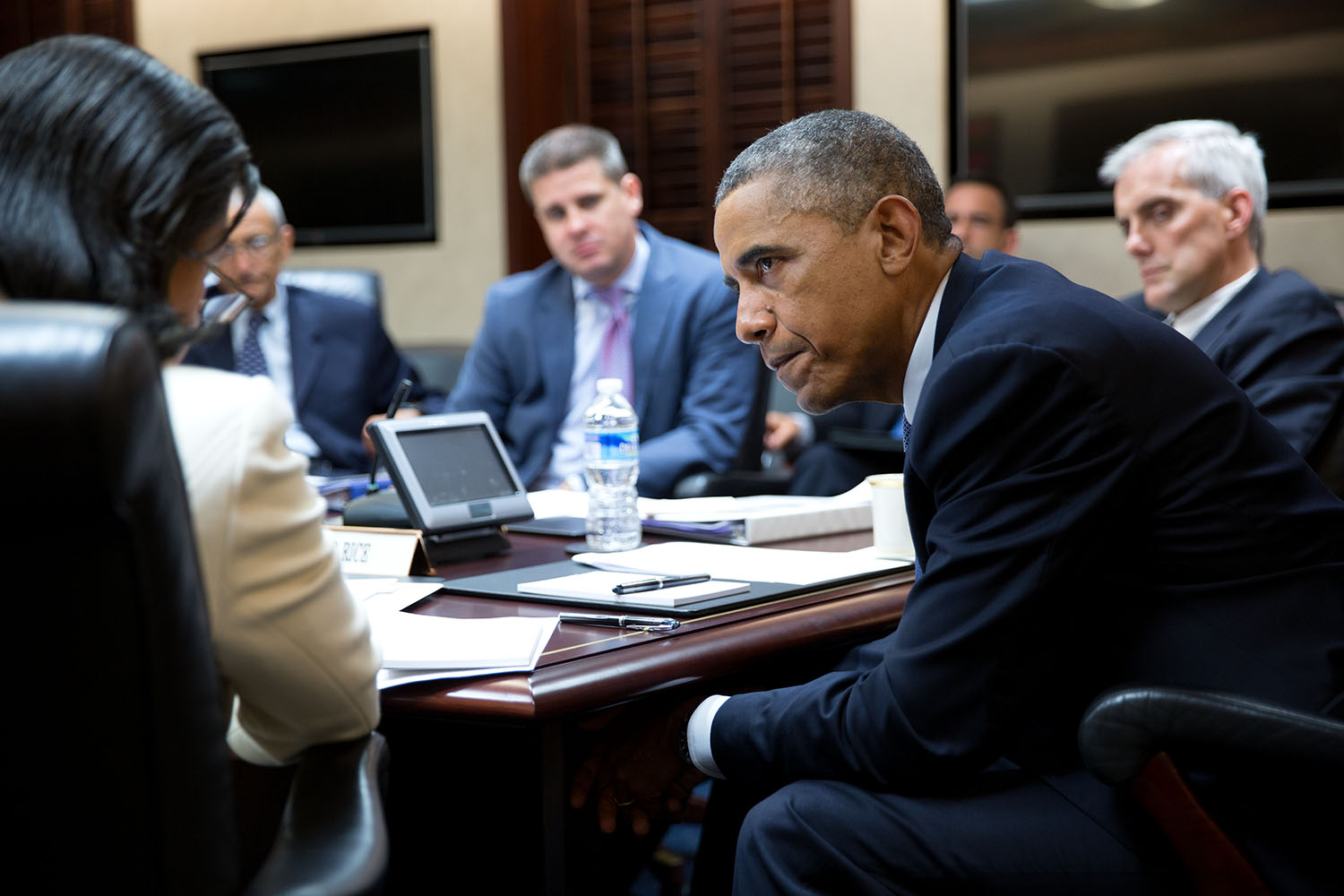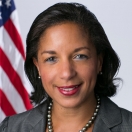

As I have traveled the globe throughout my career, I have been constantly reminded of the indispensable role of American leadership as a force for peace, progress and prosperity. We see American leadership in the halls of the United Nations, where we have led the way in building and defending an international order promoting universal human rights, liberty, and broad-based opportunity. We saw it in West Africa, where American leadership galvanized the globe to beat back the Ebola pandemic. We saw it in Paris last December, as the United States helped rally the world around a historic agreement to combat climate change.
But what makes us truly exceptional—what allows us to lead and capture the imagination of millions around the world—is not just the might of our military or the size of our economy. What sets us apart is our people—our innovation, ingenuity, and fortitude. And the diversity of the American people is at the core of our national identity. We are a nation of people drawn from every corner of the world, every religion, every race, and every experience, and we are a society that has traveled a great distance towards reaching our founding ideal that we are all created equal.
Last month, in his final address to the United Nations General Assembly, President Obama laid out the enduring source of America’s strength. He said:
“Our nation began with a promise of freedom that applied only to the few. But because of our democratic Constitution, because of our Bill of Rights, because of our ideals, ordinary people were able to organize, and march, and protest, and ultimately, those ideals won out -- opened doors for women and minorities and workers in ways that made our economy more productive and turned our diversity into a strength; that gave innovators the chance to transform every area of human endeavor; that made it possible for someone like me to be elected President of the United States.”
Watch his remarks:
As the President's National Security Advisor, I know that not only is diversity part of what makes our country great, it is a precious resource that we must harness to advance our national security. The leadership of men and women who may not share similar backgrounds lends much needed diversity of thought and creativity to our responses to some of the world’s toughest problems.
However, our national security workforce has not yet drawn fully on these strengths. Nearly 40 percent of the approximately 320 million people in the United States are minorities, and an increasing number of them are earning college and graduate degrees. As America becomes more diverse, so do our best people. Yet, minorities make up less than 20 percent of our senior diplomats and 15 percent of senior military officers and senior intelligence officials.
Around the table in the White House Situation Room and throughout our government, America is still not fully reflected.

That is why, today, President Obama is issuing a new presidential memorandum to promote diversity and inclusion in our national security workforce—a workforce made up of more than three million dedicated military and civilian personnel who advance our interests through diplomacy, development, defense, intelligence, law enforcement, and homeland security. This memorandum outlines how to use data-driven approaches, professional development opportunities, and leadership engagement to ensure that we are investing in and developing talent from all segments of our society.
Today’s presidential memorandum is a step toward cultivating a national security workforce that harnesses the best talent that America has to offer and the bedrock values that America embodies. It underscores our belief that the United States must lead the world not by preaching pluralism and tolerance, but by practicing it.
President Obama and his team of national security leaders feel strongly about the need to make our national security workforce more diverse both because it is who we are, but also because it will make us safer and more secure. Here’s what our national security leaders are saying and doing to promote diversity and inclusion across every element of our national power, from our military, to our diplomatic corps, to our intelligence community:
Secretary of Defense Ash Carter
"We also want to make sure we strive to recruit from the broadest possible pool of talent. If we don’t, we risk becoming isolated and insular, and that’s not the path to success in today’s security environment. That’s why I want everyone who’s willing and able to serve their country to have the full and equal opportunity to do so. I want everyone in this audience to view the Defense Department as a place where you could see yourselves making a contribution in the course of your careers, and also being treated with the dignity and the respect you deserve.
Our military’s openness to diversity and inclusion is one of the things that has allowed us to bring in America’s best talent and be the best in the world over time. We have to maintain that strength. Young Americans today are more diverse, open, and tolerant than past generations, and if we’re going to attract the best among them to contribute to our mission, we ourselves have to be more diverse, and open, and tolerant, too. That’s the only way to compete in the 21st century."
Secretary of State John Kerry
"Your country needs you. We need you, and we need you in all your diversity. Because if there is some stereotype in your mind about what a diplomat is supposed to look like, please forget it. I guarantee that no matter what your personal background might be, we have people in high positions who have a huge amount in common with you. The reason is that our country has no greater diplomatic asset than this: the culture and creed of virtually every country on the planet is represented somewhere within the population of the United States of America. We are an idea – not a bloodline, not an ideology – but an idea that all people are created equal. And I urge you to find the specialty that suits you most and become part of America’s team."
U.S. Attorney General Loretta Lynch
"After all, as we’ve seen throughout our history, America is a stronger country when we harness the energy, the enthusiasm and the talents of every citizen – regardless of who they are, what they look like, or what their disability status may be. Our Union is made more perfect whenever we stand up and speak out for the core values – of diversity, inclusion and equality – that have always lit the way forward. And our society is made fundamentally more just – and more equal – when we strive to broaden the circle of opportunity to include everyone with the will and the determination to forge their own path forward.
That is why we will not waver – and we must not yield – until all Americans are afforded the dignity, the respect and the opportunities they deserve. It’s why, despite all that we have accomplished over the past quarter-century, we know that our work is far from over."
Director of National Intelligence James Clapper
"We should represent our nation, and we must empower every member of our workforce, regardless of differences, because those are the right things to do. But we also have a business and mission case for why diversity and inclusion are essential...But here’s an important distinction – hiring a diverse workforce is not enough. We won’t reap the benefits of that diversity unless we also foster a culture of inclusion. People in our Intelligence Community who belong to a minority group, whether that’s because of their national origin, native language, race, color, disability, ethnicity, gender, age, religion, sexual orientation, or gender identity, need to feel welcome in our community, and they need to know they shouldn’t hide what makes them unique. It’s from our differences that we draw our strengths."
Director of the Central Intelligence Agency John Brennan
"Our goal: having both a workforce and leadership team that better resemble the Nation we help protect. Achieving that outcome is not only a matter of fairness and integrity, but one that is absolutely critical to CIA’s success. Given our global mission, no government agency stands to benefit more from diversity and inclusion than does CIA. Excellence in foreign intelligence demands broad perspectives, both in our understanding of a complex world and in our approach to challenges and opportunities. Diversity—of thought, ethnicities, backgrounds, and experiences—is essential to CIA’s mission success, and we need it at every level of our enterprise."
USAID Administrator Gayle Smith
"We want to engage with and share with students the work that we do, the work their government does. But we also want to ensure that we are building a diverse and talented workforce...part of what empathy is, it’s listening, and caring and getting that returned to you--it can shine through the kind of dark rhetoric that we hear. It can help you consider perspectives other than your own. And believe me, other perspectives are critical to getting anything done-- and that’s another lesson I’ve learned in government. If I collaborate with people across the government with whom I may not agree on everything, we can get really, really big things done. So don’t constrain your empathy to just your own beliefs. Expand it. And as you do, remember that the more people in need, the more you are needed. A million deaths shouldn’t just be a statistic. This has got to be personal, to all of us. So don’t limit the scope of your ability. Expand it. Thinking beyond yourself and your own experiences will not only make you a more effective changemaker, it will also teach you the value of diversity."
As President Obama said today, "Our greatest asset in protecting the homeland and advancing our interests abroad is the talent and diversity of our national security workforce." So if you're considering a career in international relations or national security, consider serving your country as a public servant. It's worth it.


